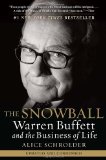My Grandmother's Lottery
My grandmother, on being told by a friend that if they won the lottery they wouldn’t know what to do with the money, was affronted: “Don't be stupid”, she said, “I’d spend half going down one side of Main Street and the other half going up the other side”. Unfortunately, in the real world, we need to keep an eye on the both sides of the equation – is it worth taking the chance of becoming rich if the downside means being poor?
Blaise Pascal, in another context, tried to answer this question five hundred years ago. Admittedly, in a sign of our changing times, he was less concerned about his terrestrial wealth than his immortal soul. Nonetheless, his argument – forever encapsulated as “Pascal’s Wager” – can just as effectively be applied to the arguments for and against a balanced investment approach.
Blaise Pascal, in another context, tried to answer this question five hundred years ago. Admittedly, in a sign of our changing times, he was less concerned about his terrestrial wealth than his immortal soul. Nonetheless, his argument – forever encapsulated as “Pascal’s Wager” – can just as effectively be applied to the arguments for and against a balanced investment approach.



